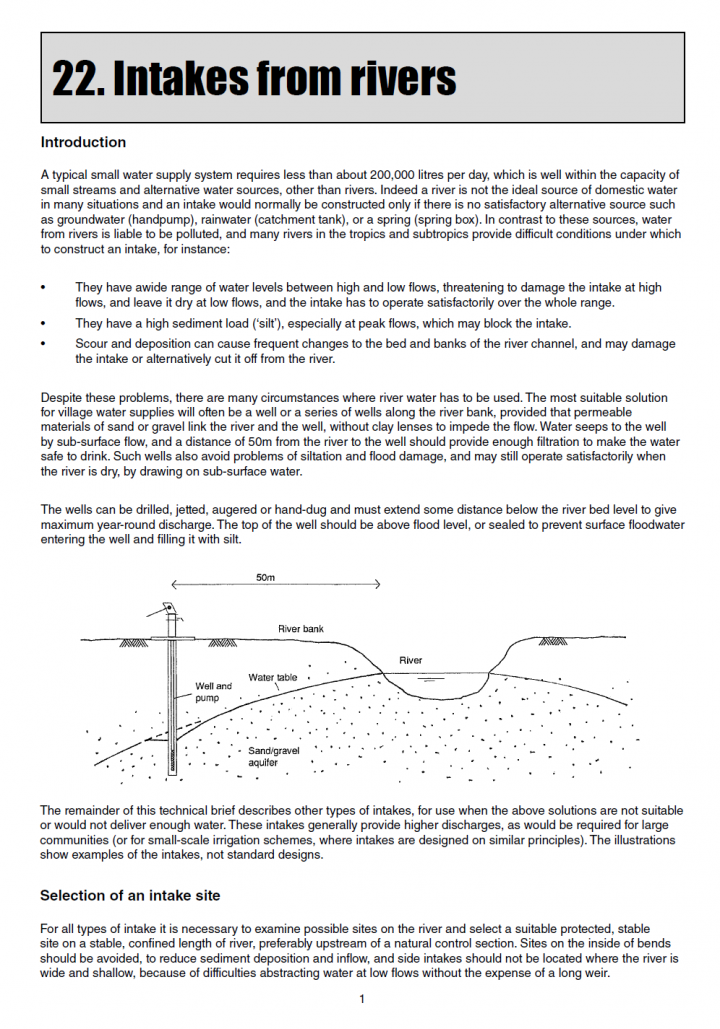Intakes from rivers Smout, I., Shaw, R. (1991)
A typical small water supply system requires less than about 200,000 litres per day, which is well within the capacity of small streams and alternative water sources, other than rivers. Indeed a river is not the ideal source of domestic water in many situations and an intake would normally be constructed only if there is no satisfactory alternative source such as groundwater (handpump), rainwater (catchment tank), or a spring (spring box). In contrast to these sources, water from rivers is liable to be polluted, and many rivers in the tropics and subtropics provide difficult conditions under which to construct an intake, for instance:
• They have awide range of water levels between high and low flows, threatening to damage the intake at high flows, and leave it dry at low flows, and the intake has to operate satisfactorily over the whole range.
• They have a high sediment load (‘silt’), especially at peak flows, which may block the intake.
• Scour and deposition can cause frequent changes to the bed and banks of the river channel, and may damage the intake or alternatively cut it off from the river.
Bibliographic information
Smout, I., Shaw, R. (1991). Intakes from rivers WEDC
Filter / Tags
English

